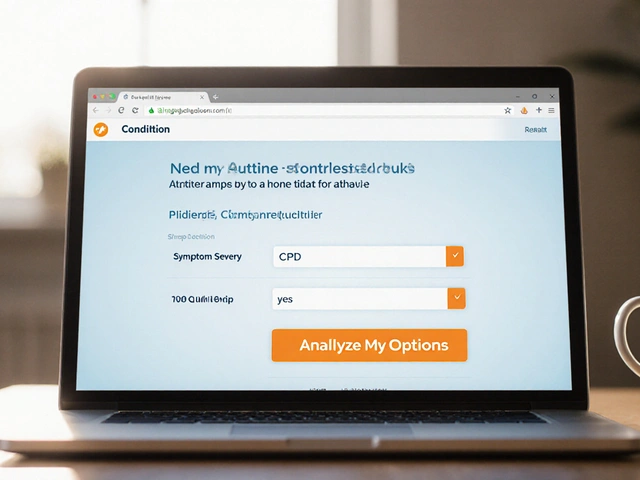Causes: What Triggers Illnesses, Side Effects & Drug Reactions
A small change — a new pill, a dose tweak, or a forgotten supplement — can explain big health shifts. This tag groups straight‑talk articles that help you find the root cause of symptoms, side effects, and unexpected drug reactions. You’ll get practical steps, clear examples, and links to deeper reads when a specific cause needs more detail.
Start by treating the problem like a detective case. When did the symptom start? Was there a new medication, a refill from a different pharmacy, or an over‑the‑counter product added? Many issues trace back to timing: an antibiotic like azithromycin can cause stomach upset or interact with other meds; benzodiazepines such as Ativan can affect heart rate or blood pressure in vulnerable people; sodium shifts cause hyponatremia in older adults after fluid changes or certain drugs.
Don’t ignore supplements. Natural doesn’t mean harmless — garlic supplements, raspberry ketone products, and herbal formulas can change how prescription drugs work or boost side effects. Even well‑known psychiatric or blood pressure drugs have alternatives and tradeoffs, so if weight gain, fatigue, or new symptoms appear, compare what changed against the list of possible causes.
Quick checklist to find the cause
- Write down every drug and supplement you take, including doses and start dates.
- Note exact timing of symptoms — date and time of day often matter.
- Look for interactions: nitrates, sildenafil, and some antibiotics are classic troublemakers.
- Consider age and health: older adults tolerate electrolyte shifts and sedatives differently.
- Check pharmacy source and authenticity if you bought medicine online — differences in formulation can cause issues.
Use this checklist right away. It helps you and your clinician narrow down likely causes fast, instead of guessing. For deeper reads, our site has articles on specific scenarios — like sodium imbalance in the elderly, Ativan and heart risks, or how some inhaler combinations compare for asthma and COPD.
When to call a clinician now
If you have fainting, chest pain, sudden severe breathing trouble, confusion, or very rapid/slow heart rates, get medical help immediately. For new but milder symptoms — persistent dizziness, swelling, severe GI upset, or marked mood change — contact your prescriber or pharmacist the same day. Bring your medication list and explain when each symptom started. That timing is often the single most useful clue.
You don’t have to guess alone. Read targeted posts here to see common causes for specific drugs and conditions, then use the checklist before you call. Clear notes save time and reduce unnecessary changes to medications. If something seems off after buying meds online, check our guides on safe pharmacies and signs of counterfeit products. Spot the cause faster, avoid harm, and keep your care on track.
1
Stable Angina: Causes, Symptoms, and Treatment Options
Alright, folks, let's talk about this super fun topic: Stable Angina. It's that chest pain that feels like an elephant is having a disco party in there due to your heart not getting enough blood. Causes? Well, it's usually from coronary artery disease where your heart's arteries are tighter than my jeans after the holidays. Symptoms, besides the aforementioned elephant rave, might include discomfort in your arms, shoulders, or jaw. Now, on to the bright side, treatment options range from lifestyle changes (like saying bye to your beloved donuts), medications to help your arteries chill a bit, and procedures to improve blood flow. So, listen to your heart, literally!
Latest Posts
Popular Posts
-
 OTC Heartburn Medications: Antacids, H2 Blockers & PPIs Explained
OTC Heartburn Medications: Antacids, H2 Blockers & PPIs Explained
-
 Meniere’s Diet: How Sodium Restriction and Fluid Balance Reduce Vertigo and Hearing Loss
Meniere’s Diet: How Sodium Restriction and Fluid Balance Reduce Vertigo and Hearing Loss
-
 Enteral Feeding Tube Medication Safety: Compatibility and Flushing Protocols Explained
Enteral Feeding Tube Medication Safety: Compatibility and Flushing Protocols Explained
-
 Extended Use Dates: How the FDA Extends Drug Expiration Dates During Shortages
Extended Use Dates: How the FDA Extends Drug Expiration Dates During Shortages
-
 Magnesium Supplements and Osteoporosis Medications: What You Need to Know About Timing
Magnesium Supplements and Osteoporosis Medications: What You Need to Know About Timing


